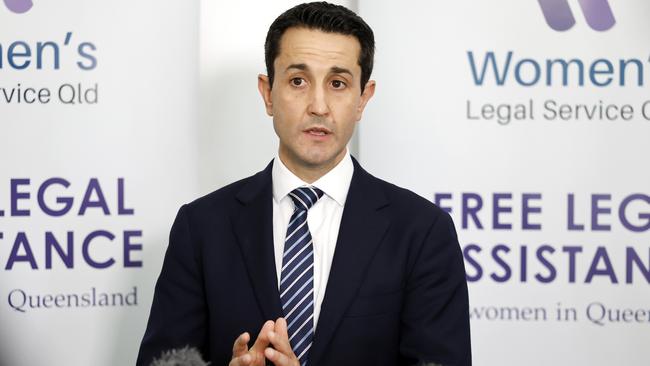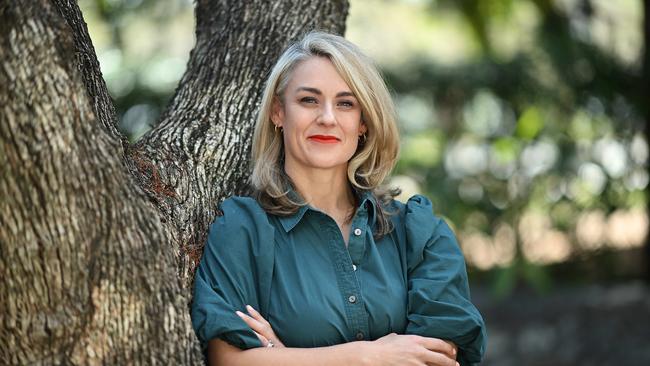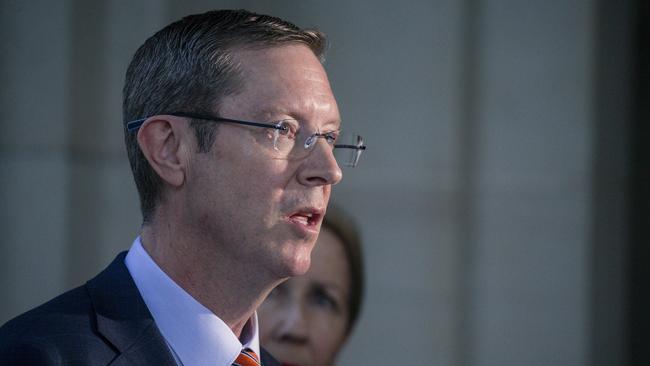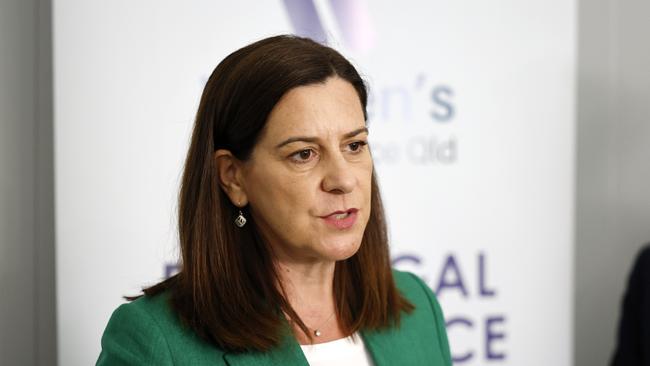Qld Premier fires back after youth crime laws slammed as inhumane
Premier David Crisafulli has hit back at experts who warned his flagship crime laws would make Queensland less safe and declared they were partly responsible for weakening them almost a decade ago.

Police & Courts
Don't miss out on the headlines from Police & Courts. Followed categories will be added to My News.
Premier David Crisafulli has hit back at experts who warned his flagship crime laws would make Queensland less safe and declared they were partly responsible for weakening them almost a decade ago.
It comes as the state government also shot down claims it would change how crime victims would be counted in a move that could protect Mr Crisafulli from being forced to resign before the next election if numbers don’t fall.
Legal and child safety stakeholders – from the Queensland Bar Association to Queensland Council of Social Services and the Youth Advocacy Centre – have lined up to criticise the government’s flagship election commitment during rushed parliamentary committee hearings.
They’ve warned the laws, which include a mandatory minimum of life in prison for murder and maximum sentences of 14 years for crimes like burglary, would cause delays across the justice system and fail to make Queenslanders safer.
Mr Crisafulli, during the election, repeatedly vowed to lead a government that listens to the experts.
On youth crime measures Mr Crisafulli maintained the LNP had made a “firm commitment” to Queenslanders at the election.
“With respect to some of the different views on one part of our youth crime strategy, it’s been the same voices that have led to the laws being weakened a decade ago,” he said.
“We are a different government, and the difference in our approach is victims are front and centre in every aspect of it.”

QCOSS chief executive Aimee McVeigh said Mr Crisafulli seemed to be wrongly suggesting existing laws were causing youth crime.
“It’s an easier response to think that we can fix the problem just by making a more punitive system, but it’s not true, there is no evidence of that,” she said.
“With great respect for the Premier, it’s not advocates or weak laws that have caused youth crime, it is our inability as a community and willingness from government to deal with the actual root causes of crime.”
YAC chief executive Katherine Hayes said the proposed new laws were more significant than changes made a decade ago and would likely result in more children being locked up for longer, with no evidence it would reduce reoffending.
“The new sentencing principles will lead to a rate of incarceration that Queensland’s facilities can’t handle. The expense will be enormous, will be misdirected and is an opportunity lost,” she said.

Top ranking youth justice bureaucrat Director-General Bob Gee this week revealed he knew the government would soon announce “how it intends to count the number of victims in the future”.
It prompted speculation the LNP would change metrics to help Mr Crisafulli deliver on a bombshell pledge to lower the number of victims by 2028 or resign at the next election.
Attorney-General Deb Frecklington did not directly respond when first asked whether the government had plans to change how victim numbers were measured.
“The most important thing we do around victims is ensuring that they go down,” she said.
“That is our number one priority.”

However, asked to clarify whether the government would change the metrics, Ms Frecklington said “no”.
“Victims are victims,” she said.
Mr Gee declined to elaborate on his comment, telling the parliamentary committee he would not breach budget or cabinet confidentiality.
Opposition Leader Steven Miles questioned whether Mr Crisafulli would attempt to “manipulate the numbers” by changing how victims are recorded in Queensland.
“If David Crisafulli does change the goalposts on this, every Queenslander who voted for him will be a victim of his deception,” he said.
Mr Crisafulli on Tuesday also confirmed the government, through modelling, knew there would be “short-term” pressures on the state’s watch houses and youth prisons though he wouldn’t specify the extent of the supply crunch.




